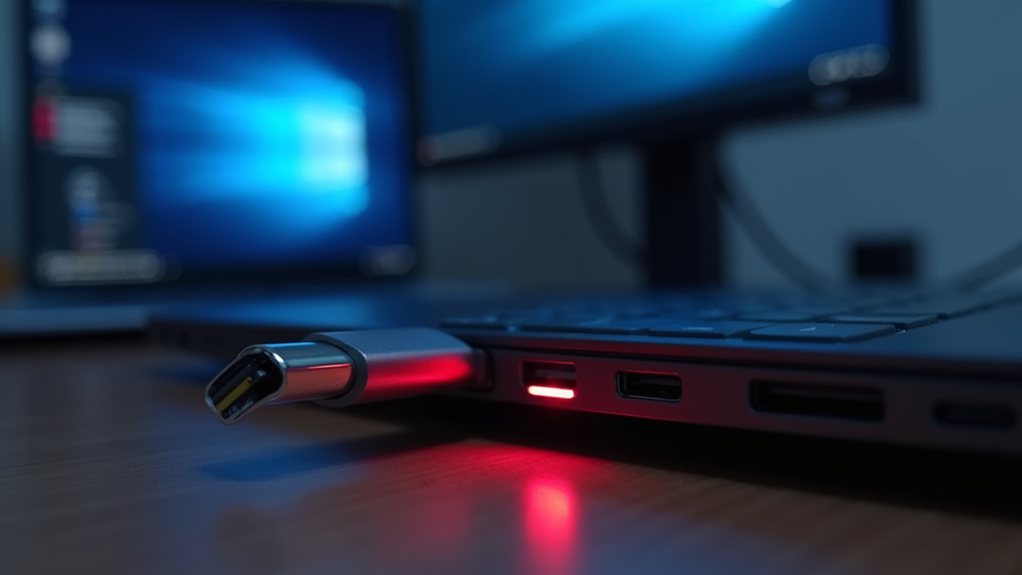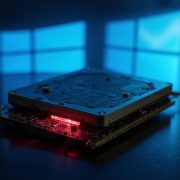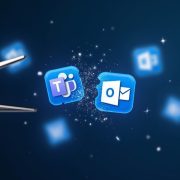Microsoft Pushes OEMs to Fix Windows 11’s Frustrating USB Type-C Notification Gaps
Microsoft is cracking down on OEMs over persistent USB Type-C notification failures in Windows 11 devices that compromise charging reliability and connectivity. The tech giant has outlined strict technical requirements for manufacturers, who often treat USB-C implementations as mere cosmetic features rather than critical functions. Poor ACPI markup and system interfaces lead to silent charging issues and undetected connections, forcing users into manual monitoring. Microsoft’s upcoming Windows 11 24H2 update promises improved error reporting capabilities that may finally resolve these frustrating gaps.

Although USB Type-C ports promise seamless connectivity in Windows 11, widespread notification failures are causing significant headaches for users across the ecosystem. From silent charging issues to undetected connection problems, these notification gaps are leaving users in the dark about potential hardware complications that could impact their devices’ longevity and performance. The Windows Hardware Kit has become essential for validating proper USB port descriptors and identifying implementation issues.
Microsoft has taken a firm stance on this issue, directly challenging OEMs to address the root causes of these notification failures. The tech giant’s investigation reveals that many manufacturers have treated USB-C implementations as mere cosmetic features, failing to properly implement essential ACPI markup and system interfaces that Windows relies on for accurate port detection and notification delivery. This oversight forces IT professionals to deal with added support burdens when trying to diagnose connection problems.
Microsoft demands OEMs fix USB-C implementation flaws, citing widespread disregard for proper system interfaces and ACPI markup standards.
The impact of these oversights extends far beyond mere inconvenience. Users are unwittingly operating their devices with misconfigured USB-C connections, potentially leading to reduced battery life and damaged components. Without proper alerts for slow charging or connection issues, what should be simple troubleshooting becomes a frustrating guessing game of hardware roulette.
At the heart of the problem lies a technical tangle of incorrect port labelling and confused internal versus external port descriptions. OEMs have frequently mislabeled Type-C ports as Type-A in their hardware descriptions, effectively telling Windows to ignore vital notification triggers. This communication breakdown between hardware and operating system creates a blind spot in Windows 11’s otherwise robust notification system.
Microsoft’s response has been thorough and decisive. The company has outlined strict technical requirements for OEMs, mandating proper ACPI descriptors and integration of the USB Type-C Connector System Software Interface (UCSI). These requirements are now being enforced through the Windows Hardware Compatibility Program, with validation through the Windows Hardware Lab Kit becoming a key checkpoint for certification.
Looking ahead to the Windows 11 24H2 update, Microsoft is implementing improved USB-C error reporting capabilities. Nonetheless, the company maintains that the ultimate responsibility lies with OEMs to properly implement these features at the hardware and firmware level. The message is clear: USB-C isn’t just another port – it’s a complex interface that requires thorough implementation for proper functionality.
For users currently manoeuvring through these issues, the situation remains challenging. Without proper notifications, they’re left to manually monitor charging speeds and connection stability. Microsoft’s push for standardisation and proper implementation suggests a future where USB-C notifications work as seamlessly as the ports themselves promise to be. Until then, the company continues to pressure OEMs through both technical guidance and certification requirements, ensuring that future devices will deliver the reliable USB-C experience users expect.
Final Thoughts
Microsoft’s initiative to urge OEMs to resolve USB Type-C notification gaps in Windows 11 is a significant advancement towards enhancing user experience. As USB-C becomes increasingly standard, addressing these issues will help eliminate confusion and improve device connectivity. While the timeline for full implementation is still unclear, this effort reflects Microsoft’s dedication to refining Windows 11’s functionality.
At PC Repairs Ipswich, we understand the importance of seamless connectivity and can assist you with any related issues you may encounter. Don’t let USB Type-C frustrations hold you back—click on our contact us page to get in touch and let us help you enhance your Windows 11 experience!











